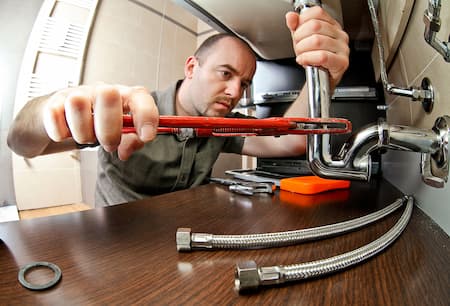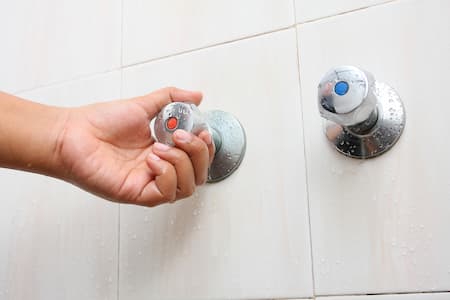Diagnosing the Problem: Why is My Bathroom Sink Not Draining?
Introduction
We’ve all been there: you turn on the faucet, and instead of the water gushing down the drain, it lingers, creating a mini pond in your bathroom. It’s perplexing and, frankly, frustrating. If you're asking yourself, "Diagnosing the Problem: Why is My Bathroom Sink Not Draining?" you're not alone. A clogged bathroom sink can be an everyday nuisance that disrupts our routine.
Understanding why your bathroom sink isn't draining properly can save you time, money, and a lot of stress. This article delves deep into diagnosing this common problem, providing insights into potential causes and solutions.
Diagnosing the Problem: Why is My Bathroom Sink Not Draining?
When you encounter a drainage issue in your bathroom sink, the first step is to diagnose what's causing the blockage. Whether it's hair buildup or soap residue, determining the problem allows you to choose the best method for fixing it.

Common Causes of Bathroom Sink Clogs
- Hair is one of the most frequent culprits behind clogged sinks. Over time, strands of hair can bind together with soap scum, forming a dense mass that obstructs water flow.
- Soap residues often mix with minerals in hard water, leading to thick deposits that narrow pipes and impede drainage.
- Items like toothpaste caps or small toys can accidentally fall into the sink, creating an immediate blockage.
- Sometimes clogs are due to pipe corrosion or misalignment that prevents proper drainage.
- In severe cases, tree roots may infiltrate underground plumbing systems and cause significant blockages.
Signs Your Sink is Clogged
- Water taking longer than usual to drain
- Gurgling sounds when water drains
- Foul odors emanating from the sink
DIY Methods to Unclog Your Bathroom Sink
Using a Plunger
A plunger can be an effective tool for tackling minor clogs.
Baking Soda and Vinegar Method
This natural solution is eco-friendly and highly effective.
Removing the Drain Stopper
If DIY methods fail, consider removing your sink's drain stopper for direct access to clogs.
Snake Your Drain
A plumbing snake helps reach deeper clogs that are out of reach from typical household remedies.
When to Call Professional Bathroom Sink Plumbers?
Sometimes DIY efforts aren’t enough; knowing when to expert Stockton plumbers call in professionals is crucial.
Identifying Serious Issues
- Persistent clogs despite multiple attempts at DIY fixes
- Recurring drainage problems indicating deeper issues
- Visible leaks around pipes indicating potential damage
Choosing Reliable Plumbing Companies Near Me
If you're searching for "plumbers near me," consider these factors:
Preventing Future Clogs in Your Bathroom Sink
Prevention is key! Here’s how to keep your bathroom sink draining smoothly:
Regular Maintenance Checks
Carry out regular inspections of your plumbing system:

- Look for signs of leaks or corrosion
- Clear any visible debris from pop-up stoppers
Using Drain Screens
Installing mesh screens can catch hair and larger particles before they enter your pipes.
Proper Waste Disposal Practices
Educate family members about what shouldn’t go down the sink:
- Avoid disposing of grease or large food particles
- Do not let hair wash down without catching it first
FAQs About Bathroom Sink Drainage Issues
Q1: What should I do if my bathroom sink drains slowly?
A1: First, try basic methods like plunging or using baking soda and vinegar before considering professional help if issues persist.
Q2: How do plumbers fix clogged sinks?
A2: Professional plumbers often use specialized tools like hydro jets or snakes to clear tough blockages effectively.
Q3: Can chemical drain cleaners harm my pipes?
A3: Yes! Chemical cleaners can corrode pipes over time; opt for gentler solutions whenever possible instead.
Q4: How much does it typically cost to hire a plumber?
A4: Costs vary widely based on location but expect anywhere from $75 to $150 per hour plus materials used during repairs.
Q5: Are there emergency plumbers available near me?
A5: Yes! Most areas have 24-hour plumbers who specialize in urgent plumbing issues; check online directories for local options.
Q6: What are some signs I need urgent plumbing services?
A6: Signs include persistent leaks, severe blockages causing overflow situations, or unusual noises coming from your plumbing system.
Conclusion
Experiencing issues with your bathroom sink draining correctly can be inconvenient but understanding how to diagnose and address these problems makes all the difference in maintaining a functional home environment. Whether you’re tackling minor clogs using DIY methods or deciding it's time to call professional bathroom sink plumbers, being proactive about maintenance will save you from headaches down the line!
So next time you find yourself pondering "Diagnosing the Problem: Why is My Bathroom Sink Not Draining?", remember that knowledge truly is power—whether you’re setting out on a DIY adventure or summoning expert help!